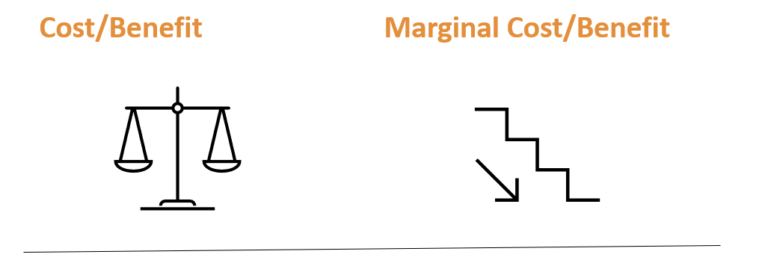Assumptions in Microeconomics
Scarcity/ | Most resources are scarce, not infinite |
Rationality | Assumes that economic actors make decisions logically |
Ceteris Paribus | Controlling all other factors so that one factor can be looked at in isolation |
Efficiency | One person can’t be made better off without causing detriment to another |
Basic Principles - Cost/Benefit

Take an action if the benefit outweighs the cost | Incremental benefit should outweigh the incremental cost |
In decision-making, only explicit costs and opportunity costs should be considered. The types of costs are: | |
Explicit/payment | The amount that you pay |
Opportunity Cost | The next best alternative |
Sunk Cost | Costs that cannot be recovered – these should not factor into cost/benefit analysis (e.g cost of a buffet lunch has been paid, therefore eat as much as you like) |
Absolute Cost | Total cost |
Marginal Cost | Cost for each additional unit |
Utility | Usefulness or value derived from a good or service |
